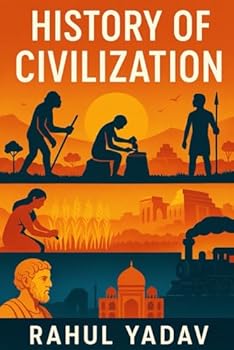History of Civilization
Human history is a vast, interconnected tapestry stretching from the first hominins in Africa to the modern global civilization we inhabit today. This book, History of Civilization, seeks to explore the arc of human development, from the earliest survival strategies to the complex societies, states, and technologies that define our world. It is both a chronicle of events and an investigation of processes: how humans adapted to environments, domesticated plants and animals, built cities and empires, and developed knowledge systems that shaped societies.
The story of civilization is not linear. It is marked by innovation and collapse, conquest and collaboration, scarcity and abundance. Humans have altered environments, forged social structures, created technologies, and established institutions-all while facing the unpredictable forces of climate, disease, and conflict. By tracing these patterns, the book highlights recurring themes: the interplay between technology and society, the consequences of environmental change, the evolution of governance and culture, and the tensions between inequality and cooperation.
This volume draws on multiple disciplines: archaeology, history, anthropology, climatology, and political economy. Evidence from ancient settlements, fossil records, early texts, trade networks, and environmental studies is woven together to provide both breadth and depth. Where scholarly debates persist, I present competing interpretations to give readers a nuanced understanding of the past.
Related Subjects
History




